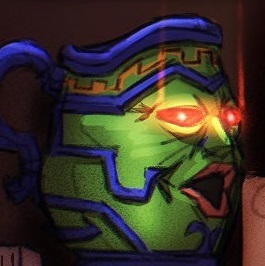Hello comrades, it’s time for our third discussion thread for The Will to Change, covering Chapters 6 (Work: What’s Love Got To Do With It?) and 7 (Feminist Manhood). Thanks to everyone who participated the last few weeks, I’m looking forward to hearing everyone’s thoughts again. And if you’re just joining the book club this week, welcome!
Chapter 6 discusses the role of work under patriarchy and how capitalism forces men and women alike to not only work long hours to survive, but to prioritize supporting themselves and their families financially over any sort of healing and growing. Chapter 7 delves into how men can apply feminist thought practically to support the well-being of themselves and the people around them.
If you haven’t read the book yet but would like to, its available free on the Internet Archive in text form, as well as an audiobook on Youtube with content warnings at the start of each chapter, courtesy of the Anarchist Audio Library, and as an audiobook on our very own TankieTube! (note: the YT version is missing the Preface but the Tankietube version has it)
As always let me know if you’d like to be added to the ping list!
Our next discussion will be on Chapters 8 (Popular Culture: Media Masculinity) and 9 (Healing Male Spirit), beginning on 12/25. That thread will likely stay up a little longer than usual as I’m sure many people will be busy around the end of the year and I want to give everyone the opportunity to share their thoughts.

I think we should give her more credit about this oversight. This book is 20 year old at this point so trans/NB identities were much less visible and understood. So based on the time and cultural at that point it makes sense that this definition is date because it is dated. But we can take what is useful and discard the rest.
Moreover, those who have redefined their own gender already understand what gender means to them. Those of us who are cis have made this decision conscientiously or more likely unexamined gender at all. So it makes sense to focus on a cis audience since the majority haven’t thought about gender at all. Those who are gender nonconforming have thought deeply about gender than most. Moreover, those who are gender non-conforming should give their own experience instead of being talk at by those who are not. As someone who is Cis-Het (like bell hooks) I wouldn’t feel comfortable talking about trans/NB identities and I think she feels the same way.
That being said removing the part about having a Penis from the definition should be done for a modern audience.
Yes to the first part about the book being old, but, respectfully, no to the second part.
I get the sentiment, but as someone with a privileged gender role, you have a special duty to use this privilege to spread awareness about the struggles of trans/NB/agender people. You have less backlash from reactionaries to fear if you do. You can do so as an ally and without assuming their perspectives.
Cis audiences not having thought about gender only means they have a need to hear about other perspectives all the more. Non-cis people having thought about it in a repressive society means they need affirmation.